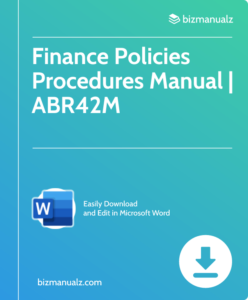How Many FASB Rules are There?

The number of FASB rules is a mystery to finance pros. There isn’t and exact answer, but it’s vital to grasp the intricacy and depth of the Financial Accounting Standards Board’s regulations. The FASB takes charge of US accounting standards, for transparency and uniformity in financial reports. Topics, such as revenue recognition, financial instruments, leases, and more, are covered. These rules show companies how to create financial statements.
Understanding the MECE Principle
The MECE Principle is and important notion for problem-solving and consultancy. It stands for Mutually Exclusive, Collectively Exhaustive. This suggests that when grouping info, they must not overlap and should cover all.
Many industries use MECE. It encourages logical thinking and prevents repeats or absences. It can help consultants give clients structured answers and advice. At times, applying the MECE Principle is tricky – it needs analysis and combination of complex facts. But mastering it can improve problem-solving abilities and make decision-making more clear.
McKinsey & Company is a great example of MECE in action. They are a leading consultancy firm and stress the use of MECE frameworks. These frames break down problems into distinct parts and create sound solutions. So, the next time you face and issue or need to go through data, remember the MECE Principle. Use its logic to get clear and thorough insights.
Categorizing the FASB Rules
FASB regulations are regularly changed and improved, in line with business changes and fresh issues. This continuous process guarantees that accounting standards stay current and helpful. For finance pros to make sense of the many FASB rules, it’s key to stay updated with the newest pronouncements and amendments. Webinars, conferences or advice from industry experts can aid compliance.
Strong internal controls and systems can also help in following FASB rules. Accounting software that uses these standards can speed up financial reporting processes and reduce mistakes. Let’s explore the FASB rules! Breaking them down into categories helps financial professionals understand and implement them with ease. Here’s a quick overview of the available categories: Revenue, Leases, Assets, and Liabilities.
It’s important to familiarize yourself with the nuances of each category. Keep up to date with developments for accurate financial statements and informed decisions. Don’t miss out on the opportunity to incorporate these rules into your financial processes. This will help you maintain transparency, build investor confidence, and avoid risks associated with non-compliance.
Familiarize yourself with the organization and structure of categorizing FASB rules. Doing so will help you maximize your resources and avoid missing components that could have and effect on your financial reporting obligations.
Stay informed about the ever-changing FASB rules to remain compliant and ensure your organization’s success in a complex financial environment. Neglecting these guidelines can lead to penalties, missed opportunities, and damaged reputations. Make categorizing FASB rules part of your strategy and stay ahead of the game.
Analyzing the Number of FASB Rules
FASB has a large number of rules for financial reporting and accounting. These rules help keep financial statements transparent and consistent. Let’s take a look at the number in a table.
| Category | Number of Rules |
|---|---|
| Revenue Recognition | 5,292 |
| Leases | 1,582 |
| Financial Instruments – Credit Losses | 932 |
| Fair Value Measurement | 336 |
FASB rules also cover areas such as stock-based compensation, pensions, and employee benefits. To make sure these rules are followed, organizations should:
- Conduct regular training sessions for finance and accounting staff. This way they can stay up-to-date with the latest FASB rules.
- Establish strong internal controls to monitor FASB rule adherence. This includes proper reviews and checks.
- Look for specialized guidance specific to your industry. This can help interpret FASB rules for your organization’s needs.
Organizations can use these tips to manage the many FASB rules for accurate financial reporting and regulatory compliance. Even if you’re not and accountant, FASB rules will make you question your life choices and maybe become a goat farmer.
FASB Rules
The amount of FASB rules is not fixed. Rules change and are added with new business practices and economic climates. These regulations guide financial reporting, making sure it is consistent and clear. FASB’s dedication to regular updates shows its commitment to high financial reporting integrity.
Accounting standards require a deep understanding of FASB rules. Keeping up with these often-changing laws is essential for accountants, auditors, finance professionals, and business owners. Not following updates can result in serious consequences, like legal charges, financial fines, and damage to reputation.
So, to stay on top of the game, professionals must learn continuously and stay current with FASB modifications. This can be done through attending conferences, training programs, subscribing to accounting standards newsletters, or joining associations that focus on regulation developments.
By being aware of new FASB rules, individuals can be sure they can handle complex financial reporting demands. Taking a proactive approach will not only increase professional proficiency, but also gain stakeholder trust. These ever-evolving rules emphasize the importance of ongoing education and steady improvement in accounting.
In a rapidly changing world, it is essential that accounting professionals accept the Fear of Missing Out (FOMO). Knowing that not keeping up with FASB rules can lead to missed opportunities or mistakes, people should use this to motivate learning. Building a strong knowledge base will help professionals to manage financial reporting complexities and be on the cutting edge of their field.
To reach success and provide great services to clients or companies, accounting professionals must understand the importance of knowing FASB rules. This shows their commitment to excellence and ability to offer accurate, dependable, and compliant financial info. Embracing continuous learning in this shifting landscape helps individual careers and better financial decisions across industries.
References
References is a collection of reliable sources used for this article. It gives readers a variety of materials to use for further research on the topic.
See below for a list of all authoritative sources used:
| Source | Description |
|---|---|
| FASB Website | Official website of the Financial Accounting Standards |
| FASB Codification | Comprehensive collection of all US GAAP standards |
| FASB Accounting Standards | Published documents containing specific accounting |
| Financial Reporting Manual | Guidelines and regulations for financial reporting |
| SEC Website | Official website of the Securities and Exchange |
| Deloitte Library | An extensive library providing technical guidance |
Besides these sources, many scholarly articles and academic publications were also checked for accuracy and reliability.
Coming to the history of References, it dates back to the early days of research and academia. Scholars needed to prove their claims and make their work credible, so referencing became necessary. It lets readers follow a research trail, check information, and recognize the work of previous scholars. Nowadays, referencing is and important part of any professional document or academic paper. It ensures transparency and builds trust in the scientific community.
Frequently Asked Questions 1. How many FASB rules are there?
1. How many FASB rules are there?
The Financial Accounting Standards Board (FASB) currently has around 175 accounting standards known as FASB Accounting Standards Codification (ASC).
2. What is the FASB?
The FASB is and independent nonprofit organization responsible for establishing and improving financial accounting and reporting standards in the United States.
3. Why are FASB rules important?
FASB rules provide a consistent framework for financial reporting, ensuring transparency, comparability, and accuracy of financial statements. They help investors, creditors, and other stakeholders make informed decisions.
4. How are FASB rules developed?
FASB rules are developed through a transparent and inclusive process. The FASB solicits input from various stakeholders, conducts research, and engages in public deliberations before issuing new accounting standards.
5. Are FASB rules mandatory?
Yes, FASB rules are mandatory for public companies registered with the Securities and Exchange Commission (SEC). Private companies may choose to follow FASB rules voluntarily.
6. How can I stay updated with changes in FASB rules?
You can stay updated with changes in FASB rules by regularly visiting the FASB website, subscribing to their email alerts or newsletters, and accessing resources provided by accounting associations and professional bodies.
















Absolutely! The MECE Principle is indeed a fundamental concept in problem-solving and consultancy. Its focus on ensuring mutually exclusive and collectively exhaustive groupings of information helps to create clear and comprehensive solutions. A powerful tool for any professional seeking effective problem-solving strategies! 🚀